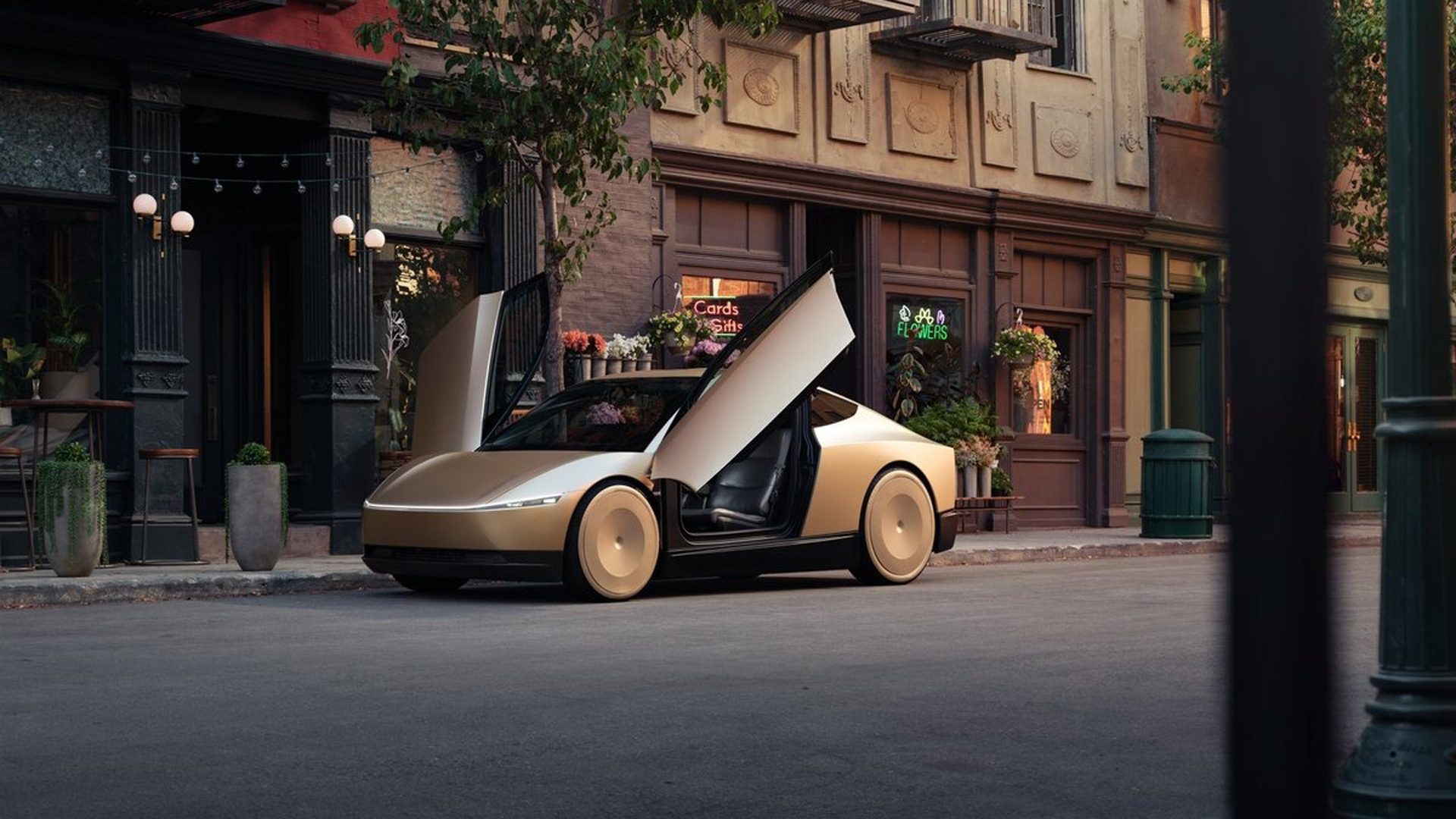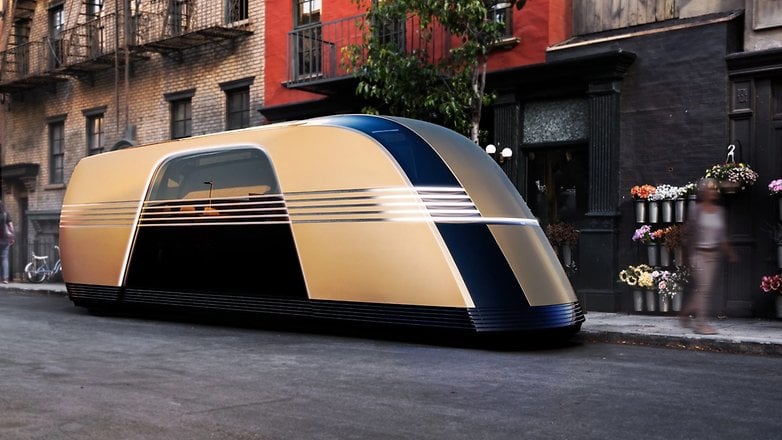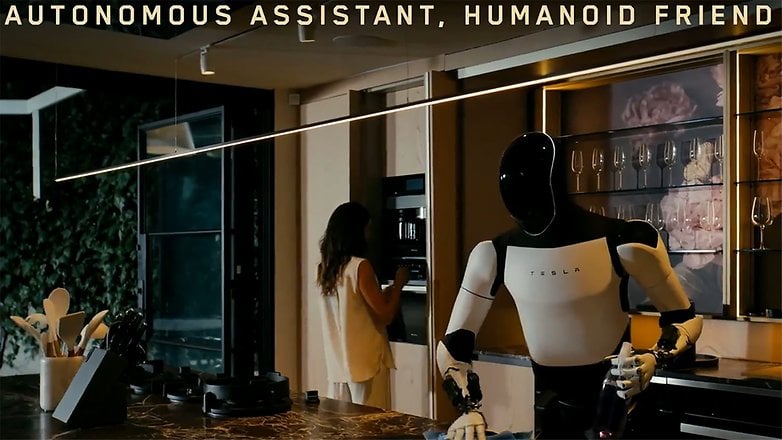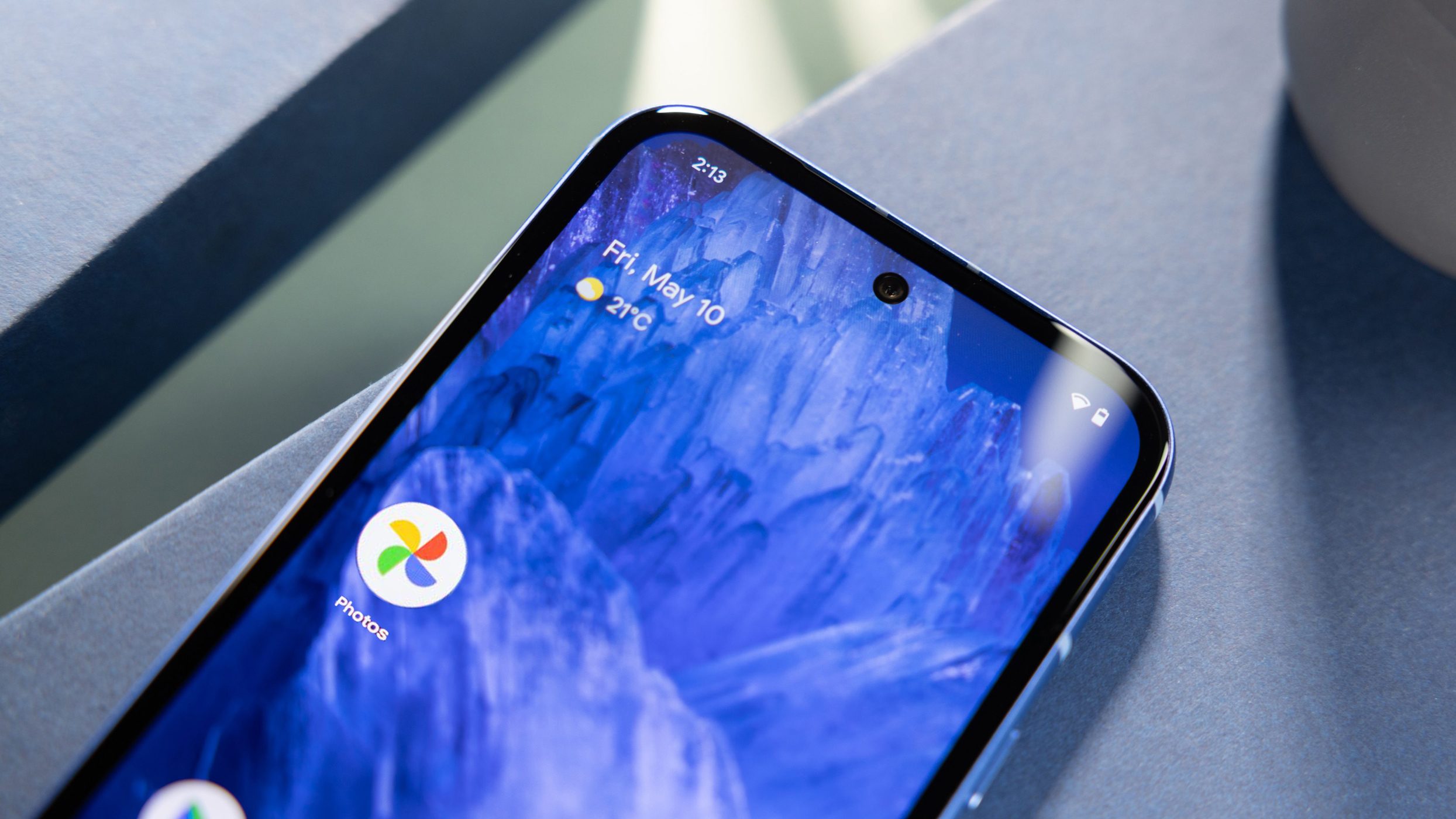
Following a tease from Elon Musk earlier this year, Tesla’s first robotaxi dubbed Cybercab is now a reality. The full-autonomous electric vehicle was unveiled at the company’s “We, Robot” event at Warner Bros. Discovery’s studio. With a promised price below $30,000, Tesla touts the electric robotaxi will be available to everyone to buy, but mass production is only set to begin in 2026.
Regardless of the name, though, the two-seater vehicle has been showcased to lack a steering wheel and pedals. There’s a large touch display in the center of the dashboard where riders can pinpoint the destination. It also features butterfly doors but at a single compared to the Model X’s vertical lifting and folding doors. Tesla uses LED bars in headlights and taillight that resemble the Cybertruck.
Tesla’s Cybercab ditches the charging port and instead relies on induction or wireless charging. To keep its cost low, the robotaxi also dropped radars and sensors for navigation in favor of AI and cameras. The Cybercab features self-cleaning with UV rays and automated vacuuming for the interior, although it hasn’t been shown yet how the latter works.
During the presentation, Elon Musk said that autonomous cars offer a more efficient mode of transportation compared to owning a traditional vehicle. He also expects that autonomous vehicles like robotaxis will be significantly safer in the future.
The X CEO also touted that owning a robotaxi would be cheaper than using mass transit and likened the costs to 20 cents per mile before taxes. Owners can also participate and include their Cybercab in Tesla’s ride-sharing platform, potentially giving them extra income.
The Cybercab is estimated to retail for $29,990 once it launches in 2026. It could also be eligible for EV tax credits in the USA which would bring its price down to $22,490. However, given the history of Musk’s missed promises in the past, you can expect that delays are met going to the launch window of the Cybercab.
Tesla’s Robovan and household robots
Alongside the robotaxi, Tesla unveiled the Robovan at the event. Details about the Robovan are scarce including the cost and release date, but it’s a driverless and autonomous shuttle that could cater to up to 20 passengers. At the same time, it can be configured to haul cargo, which is an alternative to vans and trucks.

Its Optimus robots were also part of the event where they paraded during the keynote and were seen in action doing rock paper scissor games and entertaining guests at the after-party show. Musk said that Optimus can do most tasks you want from walking your dog and mowing your lawn to teaching your kids to play baseball or serving you drinks.
It’s unclear when the Optimus will be available, but it was noted that it would cost between $20,000 to $30,000 as per Musk.

As for the rest of the announcement, Tesla revealed that it will roll out the unsupervised FSD (Full Self-Driving) in Texas and California in 2025 starting with the Model Y and Model 3. It is also planned to make the fully autonomous driving assistance features to more models in the future, with the greater vision of making the roads safer.
Do you envision that the future will have driverless cars? Which are your favorite “We, Robot” announcements? Let us hear you in the comments.
